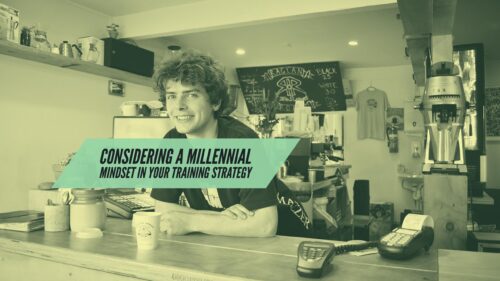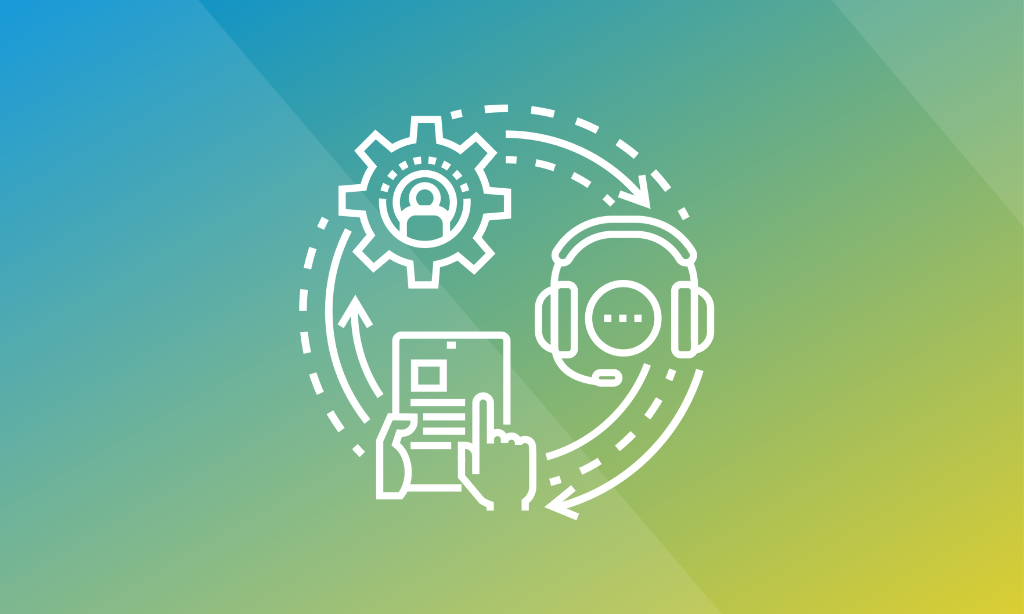The Questioning of a Millennial Mindset in Your Training Strategy
What’s up with millennials? Why should L&D professionals care? I know there are plenty of us who do not believe in the learning differences between the generations. But there is no denying that there is friction in the workplace and, right or wrong, millennials are taking the heat. So instead of being content with telling people that generational differences just don’t matter, perhaps deeper conversations would be more helpful. The usual articles I’ve read of millennials covered with data and charts that you can find anywhere on the internet. I’ve opted for a different approach here.
Millennials Ask a Lot of Questions…
Let’s start with asking questions. I read somewhere recently that a common complaint about millennials in the workforce is their always questioning authority. Or more simply put, just asking why. By questioning leadership millennials are perceived as confident which is good. But pushing the bounds of “know-it-all” status which is bad. I break this down into two parts: The flattening of the organization and unprecedented access to information because of technology. I’ll save the flattening of hierarchies for another post. Here I will consider why millennials ask so many darn questions.
Asking questions is a fundamental part of learning. It’s part of the scientific method. We formulate questions in an effort to better understand the world around us. The technology in our environment, and as part of our culture, has significantly decreased the amount of time between formulating a question in your mind and receiving an answer. Consider the effort required to research answers to questions forty to fifty or more years ago.
Its not like boomers never formulated questions in their formative years. Its just that the effort required to retrieve the answers was often not worth the journey. And I do mean a physical journey that took time and effort. I remember it well.
…Because The Internet Has All the Answers
The closest thing I had to the internet growing up was the encyclopedia britanica. If my mom couldn’t answer my question, I went to the rack of encyclopedia books and started looking. If that failed, well, that was usually the end of it unless I remembered to ask dad when he got home… but by the time he would get home from work I was often on to other things. And I had long since forgotten the importance of my questions. If mom would remember, she would remind me of my questions the next time we were at the public library. That process would take hours, days, or weeks to get me an answer.
As a kid constantly crafting questions in your mind, you quickly learned the futile nature of getting any information at all very quickly. The flip side with millennials is that they’ve grown up having access to ALL OF IT! And by all of it, I mean ALL of the information. Literally ALL of the knowledge ever collected throughout human history. At least in their minds that’s what the internet contains. And I think it’s safe to say they’re mostly right.
This extreme level of access to information has conditioned expectations. Shouldn’t all the questions simply be answered immediately by Siri? The idea that the internet does NOT have ALL the answers is a shocking realization I’ve seen in the eyes of my kids.
Understanding “Why”
Millennials ask a lot of questions because they want to know why. They don’t just want to be told that something needs to be done. They want to know WHY it needs to be done…and they’re okay asking. Why, you ask? (are you a millenial?) Because they are comfortable formulating questions in their minds and having answers to those questions returned quickly and too their satisfaction. There is a reason for everything and so why not know what it is. The environment of the Boomer and Gen-X generations left many unanswered questions and one would simply assume that leadership had their reasons, and the reasons for their requests were good ones.
Shift Your Millennial Mindset
It’s new technologies like mobile devices, cloud services, and software platforms that have given everyone the power to access answers. The difference with millennials is that they’ve grown up with this power. They don’t remember a time without it. It’s part of who they are. Not only as individuals, but who they are as groups and cohorts as well.
The idea that millennials are somehow different in such frustrating ways is a popular conversation to have. But in reality the wants and needs were the same for Boomers and Gen-Xers. However, it was a different environment and culture that molded them. An environment with limited technology by today’s standards. But it’s not too late for boomers and Gen-Xers to engage with millennials and formulate a millennial mindset.
Technology evens the playing field. It’s not just a millennial thing. People of all ages are embracing the technological advances of the millennial decades. And since many Boomers and GenXers have also embraced 21st century tech, it’s more appropriate to comment on what is referred too as the millennial mindset. You can be born before 1980 and feel just like a millennial. I know I do.
A Training Strategy with a Millennial Mindset
Build an environment that supports the learning process and offers the right content, to the right people, at the right time, in the right format. This means your training needs to work like YouTube. It needs to work on any device. Any YouTube video link will launch the YouTube player and play a video on any device. It’s a frictionless process that just works. Your enterprise systems should be searchable, sharable, and viewable across all devices. Not only should content exist, but it should be easy to find.
And now more than ever, your training strategy should be open for anyone to create learning content as well. It’s the sharing culture of the millennial generation. And it also allows everyone to create content which also fulfills their need be useful and contributing in meaningful ways. It’s one thing to show up and do one’s job, but having the ability to teach others what you do is rewarding. And part of the millennial mindset is about building and maintaining your personal brand. Allowing employees to elevate their status through sharing with the community allows this to happen without the superficial promotion through titles. Being seen as valuable by your peers because of how much you share is far more valuable to those with the millennial mindset.
Allowing for easy content creation and sharing of content is one easy step you can take. And making that content discoverable, and deliverable across devices is another. You can also add gamification elements, and entertainment value to level up your training strategy as well. But it all starts with a proper learning management system that supports the millennial mindset. Start a Litmos trial today and start engaging your millennial workforce to improve key performance indicators.





